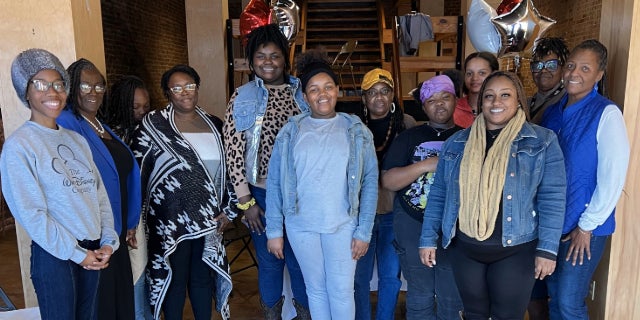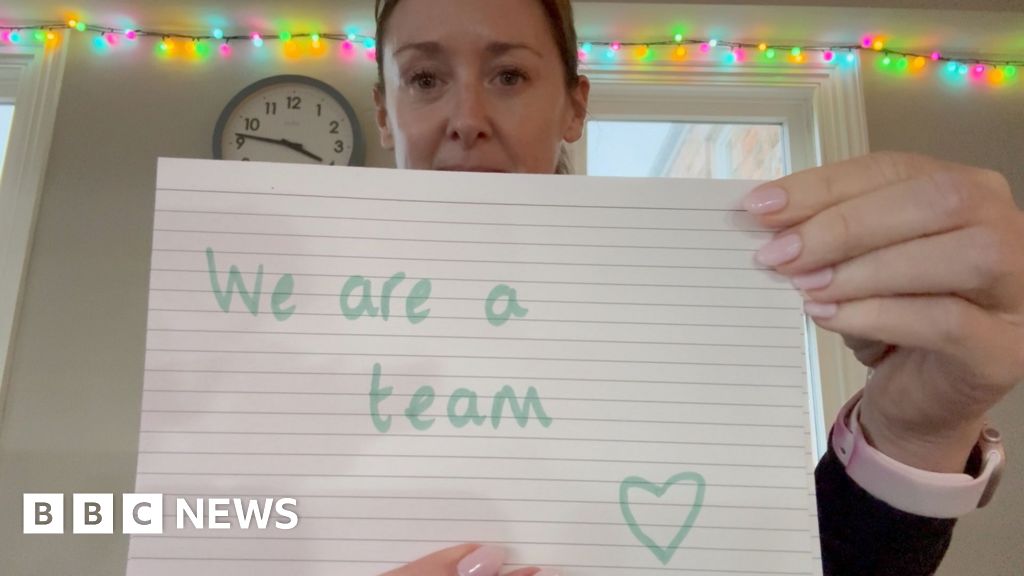
Internet Archive fans beg publishers to stop emptying the open library.
As a result of book publishers successfully suing the Internet Archive (IA) last year, the free online library that strives to keep growing online access to books recently shrank by about 500,000 titles.
IA reported in a blog post this month that publishers abruptly forcing these takedowns triggered a “devastating loss” for readers who depend on IA to access books that are otherwise impossible or difficult to access.
To restore access, IA is now appealing, hoping to reverse the prior court’s decision by convincing the US Court of Appeals in the Second Circuit that IA’s controlled digital lending of its physical books should be considered fair use under copyright law. An April court filing shows that IA intends to argue that the publishers have no evidence that the e-book market has been harmed by the open library’s lending, and copyright law is better served by allowing IA’s lending than by preventing it.
“We use industry-standard technology to prevent our books from being downloaded and redistributed—the same technology used by corporate publishers,” Chris Freeland, IA’s director of library services, wrote in the blog. “But the publishers suing our library say we shouldn’t be allowed to lend the books we own. They have forced us to remove more than half a million books from our library, and that’s why we are appealing.”
IA will have an opportunity to defend its practices when oral arguments start in its appeal on June 28.
“Our position is straightforward; we just want to let our library patrons borrow and read the books we own, like any other library,” Freeland wrote, while arguing that the “potential repercussions of this lawsuit extend far beyond the Internet Archive” and publishers should just “let readers read.”
“This is a fight for the preservation of all libraries and the fundamental right to access information, a cornerstone of any democratic society,” Freeland wrote. “We believe in the right of authors to benefit from their work; and we believe that libraries must be permitted to fulfill their mission of providing access to knowledge, regardless of whether it takes physical or digital form. Doing so upholds the principle that knowledge should be equally and equitably accessible to everyone, regardless of where they live or where they learn.”
After publishers won an injunction stopping IA’s digital lending, which “limits what we can do with our digitized books,” IA’s help page said, the open library started shrinking. While “removed books are still available to patrons with print disabilities,” everyone else has been cut off, causing many books in IA’s collection to show up as “Borrow Unavailable.”
Ever since, IA has been “inundated” with inquiries from readers all over the world searching for the removed books, Freeland said. And “we get tagged in social media every day where people are like, ‘why are there so many books gone from our library’?” Freeland told Ars.
In an open letter to publishers signed by nearly 19,000 supporters, IA fans begged publishers to reconsider forcing takedowns and quickly restore access to the lost books.
Among the “far-reaching implications” of the takedowns, IA fans counted the negative educational impact of academics, students, and educators—”particularly in underserved communities where access is limited—who were suddenly cut off from “research materials and literature that support their learning and academic growth.”
They also argued that the takedowns dealt “a serious blow to lower-income families, people with disabilities, rural communities, and LGBTQ+ people, among many others,” who may not have access to a local library or feel “safe accessing the information they need in public.”
“Your removal of these books impedes academic progress and innovation, as well as imperiling the preservation of our cultural and historical knowledge,” the letter said.
“This isn’t happening in the abstract,” Freeland told Ars. “This is real. People no longer have access to a half a million books.”
In an IA blog, one independent researcher called IA a “lifeline,” while others claimed academic progress was “halted” or delayed by the takedowns.
“I understand that publishers and authors have to make a profit, but most of the material I am trying to access is written by people who are dead and whose publishers have stopped printing the material,” wrote one IA fan from Boston.
“These books being available on archive.org is a vital resource for me and many like me,” wrote another from Australia. “A large amount of the Archive was never released in my corner of the globe, meaning I have few if any options for reading on niche subjects.”
On a help page, IA explained that half a million books are now gone because the takedown requests went beyond just the books at issue in the lawsuit.
“The Association of American Publishers (AAP), the trade organization behind the lawsuit, worked with some of its member publishers” that “were not named in the lawsuit to demand that we remove their books from our library,” the help page said.
Asked for comment, an AAP spokesperson provided Ars with a statement defending the takedown requests. The spokesperson declined to comment on readers’ concerns or the alleged social impacts of takedowns.
“As Internet Archive is certainly aware, removals of literary works from Internet Archive’s transmission platform were ordered by a federal court with the mutual agreement of Internet Archive, following the court’s unequivocal finding of copyright infringement,” AAP’s statement said. “In short, Internet Archive transmitted literary works to the entire world while refusing to license the requisite rights from the authors and publishers who make such works possible.”
In the open letter to publishers—which Techdirt opined “will almost certainly fall on extremely deaf ears”—the Internet Archive and its fans “respectfully” asked publishers “to restore access to the books” that were removed.
They also suggested that “there is a way” to protect authors’ rights and ensure they’re fairly compensated “while still allowing libraries to do what they have always done—help readers read.”
“We urge you to explore solutions with the Internet Archive that support both authors and the public good, such as selling eBooks to libraries to own, lend, and preserve,” the letter said.
If publishers won’t bring back the books, IA plans to fight to restore access to the titles in court. Ars was not immediately able to reach IA for comment, but a court brief filed in April sheds light on how IA plans to convince the appeals court to reverse the lower court’s injunction on its digital lending.
For the appeals court, the “key question,” IA’s brief said, is whether controlled digital lending serves copyright’s purposes and important public interests. IA argues that it does because its open library is used for “purposes of teaching, research, and scholarship.” Publishers cannot dispute that, IA claimed, just because “some books are also borrowed for recreational use (just as they are at all libraries).”
“The record is replete with examples of IA facilitating access to books needed for classroom use and academic research that would not have been possible otherwise,” IA’s brief said.
For IA’s digital lending to be considered fair use, the brief said, the court must balance all factors favoring a ruling of fair use, including weighing that IA’s use is “non-commercial, serves important library missions long recognized by Congress, and causes no market harm.”
Publishers with surging profits have so far struggled to show any evidence of market harm, while IA has offered multiple expert opinions showing that ebook licensing was not negatively impacted by IA’s digital lending.
“Publishers’ ebook revenues have grown since IA began its lending,” IA argued.
And even when IA temporarily stopped limiting the number of loans to provide emergency access to books during the pandemic—which could be considered a proxy for publishers’ fear that IA’s lending could pose a greater threat if it became much more widespread—IA’s expert “found no evidence of market harm.”
“Yet they ask the Court to assume, without support, that their profits could have been even higher without IA’s lending,” IA’s brief said.
The prior court ruling also erred, IA suggested, in basing its commerciality ruling on supposed “benefits” to IA—like donations and small payments from bookseller Better World Books. Donations don’t “render a nonprofit use commercial,” IA argued, and profits from small payments went right back into funding IA’s lending.
“Many nonprofits do the same, and those partnerships do not transform them into commercial entities,” IA argued.
But for IA, the biggest oversight of the prior ruling was “the district court’s failure to consider” that “promoting availability” of knowledge and information is a primary consideration for copyright law.
“To the contrary, the decision barely mentions copyright’s ultimate purpose of promoting broad public availability of literature, music, and the other arts,” it said.
IA hopes the appeals court will agree that publishers’ ebook licenses are in a separate market from the nonprofit’s controlled digital lending, which IA argued serves a different purpose than ebooks. “Publishers’ licenses cannot serve library missions such as preserving permanent collections, widening reach and resources through interlibrary loans, and protecting patron privacy,” IA argued in defense of controlled digital lending.
“IA’s lending is noncommercial, transformative, and supportive of copyright’s purposes,” IA’s brief said, arguing that affirming the prior court’s decision “would harm not only IA but also many other libraries and the publics they serve.”
Freeland told Ars it could take months or even more than a year before a decision is reached in the case.
While IA fights to end the injunction, its other library services continue growing, IA has said. IA “may still digitize books for preservation purposes” and “provide access to our digital collections” through interlibrary loan and other means. IA can also continue lending out-of-print and public domain books.
One IA fan in rural India fears that if publishers win, it would permanently cut many people like her off from one of the few reliable resources she has to access rare books.
“If you are going to ban online availability of these resources, what about us?” she asked.
Listing image: Tim Macpherson | Image Source
Ars Technica has been separating the signal from the noise for over 25 years. With our unique combination of technical savvy and wide-ranging interest in the technological arts and sciences, Ars is the trusted source in a sea of information. After all, you don’t need to know everything, only what’s important.
source



















